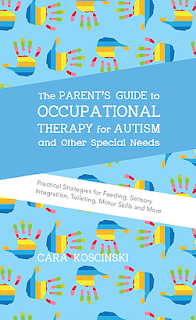
20 Snowman Crafts
Who wants to build a snowman? We do! This week we’ve rounded up some snowman crafts and activities. Each link contains a fun…
It’s nearing the back to school time and I’d like to give you some tips to help your child with common school-related tasks. Read our earlier blog post giving tips to use your helper hand. For today—- let’s talk about crossing the midline.
The WHAT?!?! Imagine there is a long line that goes from the top of your head and literally cuts your body in half lengthwise. The line is what separates the left half of your body from the right. Believe it or not, your brain actually controls the OPPOSITE side of your body in most cases! Crazy, right…..
What happens if we do not learn this skill?
By ages 3 or 4, most children develop the ability to use both sides of the body together for a task. This skill, crossing the midline, is critical to future skills including writing, reading, daily life skills, sports, and most any activity we complete on a daily basis. When you use your right hand to comb the hair on the left side of your head; put your shoes and socks on; use your left hand to scratch your right elbow, and reading from the left side of the page to the right side you are crossing the body’s midline. Why should we care? If this skill does not develop, we may have great difficulties reading and using our hands together. As OTs, we like to call the dominant hand the ‘worker or doer’ hand and the non-dominant hand the ‘helper.’ Consider cutting a piece of paper….the right-hand dominant child holds the scissors with the right hand and assists by turning the paper and stabilizing it with the left hand. When cooking, we hold the bowl with our helper hand and stir with our dominant hand. You can see how the skill of crossing midline applies to many daily tasks.
The brain is actually showing a level of maturity when both sides effectively communicate with each other. If not, we may experience frustration due to lack of motor (movement) control, frustration when reading, and poor coordination.
In our books, we give you thousands of tips, help, and tricks called
What are the signs of difficulty crossing mid-line?
 |
| My book has thousands of helpful ideas |
-Frustration when reading
-Losing place while reading
-A difficulty with motor coordination
-Trouble playing sports
-Switching hands while writing, pounding, or painting
-Frustration with using both hands together for a task (such as putting on socks or using scissors)
-Switching feet when kicking a ball
-Difficulty turning the core or trunk of the body side to side
-Unable to complete skipping, jumping jacks, and crawling
What can I do to help my child to cross the midline?
My first tip is to let your pediatrician know to rule out any neurological condition and then request an evaluation from a trained Occupational Therapist. We are skilled in helping children to develop critical skills while completing FUN activities! Also, consider making a list of your child’s specific weaknesses and consult with the child’s team to look for signs of midline crossing difficulty.
Here’s a fun video my friend and I created a few years ago! It’s our ‘old logo’ so you might notice our company’s progress. We enjoyed making it and hope you gain helpful ideas from watching: you’ll find at least 7 tips for you. **As always, check with your child’s medical professional prior to doing any treatment activity.
As always, let me know what tips worked for you and keep sharing the word about our blog, books, videos, and conferences.

Do you have your copy of our newest book? It’s already a best-seller on Amazon! Get yours today.


